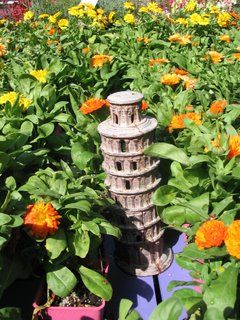 There is a “Great British Garden Revival” going on! To help novice gardeners The Telegraph published some timely tips from The RHS (Royal Horticultural Society). It’s titled, “What to do in the garden in December”. Let’s get started looking at it from a novices point of view.
There is a “Great British Garden Revival” going on! To help novice gardeners The Telegraph published some timely tips from The RHS (Royal Horticultural Society). It’s titled, “What to do in the garden in December”. Let’s get started looking at it from a novices point of view.
"Feed the birds! Although they benefit from having food put out for them all year round, birds need a high-fat boost to their diet during the winter. Feed regularly so they will not waste vital energy visiting your garden when there is nothing for them.” It is a new garden so there is not much in it. I don’t want the birds to go hungry and die. Let's pick up some seed later. Next!
“Wage war on aphids. Some species remain active in mild winters or on indoor plants. But most overwinter as eggs, often on dormant deciduous fruit trees and bushes. These can be treated with a plant oil winter wash (Growing Success Winter Tree Wash or Vitax Winter Tree Wash).” Good grief! I don’t want dying birds, and I hate war. What are aphids, and how does washing my trees do any good? They seem clean enough. Next!
“Christmas trees, are now available. Choose from a cut, container-grown or containerised specimen. Those grown on in pots may only live for a few years – they are not naturally suited to permanent pot cultivation.” Specimens? That sounds like an unpleasant trip to the doctor. I wanted to buy a live Christmas tree to plant in my new garden, but if they only live a few years? I’ll just pick up a dying one at the supermarket. This gardening stuff sure is time consuming, and confusing. There’s more?
“If you want to move established deciduous trees and shrubs to another part of the garden, now is a good time. Choose a calm, dull day to help prevent roots from drying out.” I have to wait for a “dull day”? Why can’t I do it on a beautiful day? Deciduous? Next!
“Check recommended times for pruning trees, shrubs and climbers. Prune ornamental and edible grape vines, hornbeam, walnut and mulberry, and if necessary, maple and birch before Christmas to prevent bleeding from pruning cuts.” Before Christmas!?! How do I know if it's necessary to prune maples and birch? That does it. I am not going to spend a dull day, washing the trees, only to watch them bleed. Meanwhile the birds are falling to the ground because I forgot to feed them? Gardening with “specimens”? No thank you. I wanted to participate, but this garden revival stuff sounds like a bunch of hard, miserable work. War? You know, my husband wants to pave over the front yard and be done with it. I wonder…
I am sure the folks at The RHS mean well, but if this is what is recommended to the public is it any wonder Britain needs a "garden revival”? I am not picking on The British, as we have the same issues here in The States. Perhaps we just need to quit being so helpful, and trying to include every last thing someone could do? Start with changing the horticultural terms like “containerized specimen”, bleeding trees”, “plant oil winter wash”, "deciduous", and “ornamental”. “Waging war” is a term best left at the garden gate. “Permanent pot cultivation”? Maybe people just wanted to grow a little pot during the summer, not permanently? To encourage people into the garden, we need to look at how we describe what we do in the garden. Step back, and look at gardening from the novices point of view. Let’s not scare them away with war, specimens, and hungry birds.


